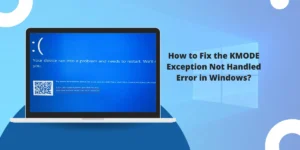A Basic Overview of Code Signing Certificate
Code signing is a critical process that ensures the integrity and security of software applications. However, what happens when your Code Signing Certificate expires? The expiration of your Code Signing Certificate can have serious consequences for your software and your business.
When your Code Signing Certificate expires, your software may be flagged as untrusted, and users may be unable to install or run your applications. This can lead to a loss of trust, decreased user adoption, and even legal and financial repercussions. Understanding the importance of renewing your Code Signing Certificate before it expires is essential for maintaining the security and reliability of your software.
Key Takeaways
- Code signing certificates are used to digitally sign software, drivers, scripts, and other executable files to verify their integrity and authenticity.
- Code signing certificates expire after 1-3 years, depending on the type. Once expired, the certificate is no longer trusted for signing code.
- Expired certificates will cause signed software to prompt warnings or fail verification checks when run on user devices. Apps that rely on the certificate may stop working entirely.
- Code signing certificates must be renewed before expiry to avoid disruption. The renewed certificate retains the same private key, so the signed code remains verified.
- If renewal is not possible, the code must be re-signed with a new, valid certificate. This can be time-consuming for large programs, and revocation of old certificates may be required.
- Code signing relies on operating systems and software enforcing validity periods. Expiry ensures certificates stay current and reduces security risks from compromised keys.
The Role and Importance of Code Signing Certificates
Code signing certificates utilize digital signatures and public key cryptography to verify the publisher of software and check it has not been tampered with since signing.
When developers digitally sign executables and scripts, they attach a signature using the private key from a code signing certificate issued by a trusted certificate authority (CA).
User systems have the public key for this CA, enabling verification of the signature to confirm the software comes from the certified publisher and has not been altered.
Unlike SSL/TLS certificates for websites, code-signing certificates employ two layers of trust verification:
- CA trust: The issuing CA validates the developer’s identity when issuing the certificate. The CA’s public key can verify the developer’s digital signature on the certificate.
- Code identity trust: The developer’s public key validates their signature on the executable code itself, confirming that it matches the file they originally signed.
This protects users against running unsafe or malicious code from unknown publishers by ensuring software is certified by a trusted authority.
Key Uses of Code Signing Certificate
- Driver signing: The publisher must sign device drivers before they can be installed on Windows, macOS, and Linux. This prevents malware disguised as drivers.
- PowerShell script signing: Signing PowerShell scripts blocks untrusted/altered scripts from running on Windows systems.
- Application signing: Signing desktop or mobile apps certifies them as coming from the publisher to users. Apps can also be timestamped.
- Firmware signing: Device firmware files are signed to verify updates come from the legitimate manufacturer.
- Code integrity: Signing code protects against tampering attacks during distribution or storage. If altered, the signature won’t be verified.
Without valid code signing, these types of executable files could be tampered with or swapped with malicious ones. The integrity protection offered by signing is critical for software security.
Impacts of Expired Code Signing Certificates
When a code signing certificate expires, the digital signature can no longer be verified as coming from the trusted publisher.
Once the validity period ends, the public key certificate becomes expired. The private key remains unaffected, but signatures created using it become untrusted.
On modern operating systems, running signed code that has expired will produce error messages or warnings:
- Windows will display warnings about the publisher no longer being trusted due to expiration.
- macOS will block the installation of expired signed apps, drivers, or plugins with errors.
- Linux systems will also block the loading of kernel modules and drivers if the signature is expired.
- Mobile platforms like iOS and Android will prevent the installation and running of apps with expired certificates.
For software relying specifically on the validity of code signatures, expiration may cause complete failure and inability to run properly:
- Apps and scripts calling signature verification functions will start erroring out.
- Software may contain built-in checks for certificate expiry that make the program exit if triggered.
- Anti-virus tools will start flagging files from trusted publishers as suspects if signatures expire.
- Websites or services that validate signed codes or files will reject expired signatures.
Once certificates are renewed, the same signed code will run as normal again on user devices and systems. However, allowing code signing validity to lapse can cause major disruption to software distribution and operations.
The impacts grow more severe as the longer certificates expire before renewal. Let’s examine the options for renewing and replacing expired certificates.
How to Renew Expiring Code Signing Certificates
The easiest way to maintain valid code signing is to renew certificates before they expire. This allows retaining the same private/public key pair and mitigates disruption.
Certificate Authorities support renewal processes that largely mirror the initial validation and issuance flows:
- Verification: Confirm your identity and organization status are still valid.
- New certificate: A new public key certificate is issued with an updated validity period.
- Same private key: The existing private key is retained, along with any past signatures created with it.
- Updated trust: The renewed public certificate is distributed to user systems to maintain trusted status.
As long as the same private key is maintained, previously signed executables, drivers, scripts, etc., will continue to verify properly with the renewed certificate.
Distributing the new public certificate via trust stores avoids any expiration warnings for end users.
Many CAs provide notifications ahead of expiration to prompt timely renewal. Certificate lifetimes range from 1 to 3 years normally, allowing plenty of renewal lead time.
The updated validity period will depend on your CA and certificate type, but commonly, renewed certificates have a lifespan of 1 to 2 years.
Re-signing code with New Certificates
If certificate renewal is not possible due to lapsed validity, a new code signing certificate must be generated. This involves:
- New key pair: A new public/private key pair must be created. The old private key needs to be reused.
- Certificate issuance: The new public key goes through the standard issuance process with your CA.
- Re-sign executables: All software and files must be re-signed using the new certificate’s private key.
- Distribute certificate: The new public certificate is pushed to trust stores on user devices and systems.
With a totally new certificate, all code must be re-signed to establish trust and integrity. This avoids blocks or errors when users install the software.
For large applications, runtimes, operating system components, and device firmware, re-signing can become very complex:
- All executable files, scripts, packages, modules, and libraries may need re-signing.
- Automation scripts will likely be required to strip old signatures and re-sign code at scale.
- Re-signing app packages on multiple platforms like Windows, macOS, iOS and Android takes coordination.
- Firmware and hardware drivers have tight integration with signatures at manufacturing.
Failure to re-sign critical code components or missing files during automated re-signing can lead to unexpected failures.
Extensive testing of re-signed code on all target platforms is essential to ensure proper execution and stability.
Revoking Expired Certificates
Along with re-signing software, publishers must formally revoke expired certificates once renewal is no longer possible.
Certificate revocation tells user systems and trust stores that the old certificate should explicitly not be trusted anymore if encountered.
Revocation works through Certificate Revocation Lists (CRLs) or the Online Certificate Status Protocol (OCSP):
- CRLs: Lists of revoked certificates published by CAs. Devices check these lists.
- OCSP: Real-time protocol used to query the status of individual certificates.
Without adding expired certificates to revocation lists, old signatures may still be validated if the expiry date is ignored.
Formal revocation ensures the expired certificate will fail any signature checks by users:
- Removes trusted status globally via CRLs and OCSP responses.
- Notifies all relying parties to invalidate the old certificate if seen.
- Mandatory for Extended Validation EV code signing certificates.
- Helps curb potential misuse or confusion around the legitimacy of the certificate.
Browsers and operating systems regularly fetch certificate revocation lists from CAs to screen out revoked certificates. This maintains the integrity of code signing and SSL/TLS certificate validation overall.
Best Practices for Code Certificate Renewal
Maintaining active and trusted code signing certificates requires some care and planning, given the potential impacts of expiration on software availability.
Here are some best practices:
- Track expiration dates: Mark your calendar well in advance of renewal deadlines to account for CA processing time. Most CAs send expiry notices.
- Renew several months early: Don’t wait until the last minute! Renewing 60-90 days before expiration ensures no gap in trust.
- Have a revocation plan: If renewal fails, have a contingency plan to revoke expired certificates. Keep signed code copies to re-sign.
- Implement renewals globally: Coordinate certificate renewals across all platforms, devices, and geographies signed code is used.
- Test renewed certificates: Validate renewed certificates function properly in all runtimes and scenarios before deploying widely.
- Automate re-signing: Have automated scripts or pipelines ready to re-sign large codebases if a re-issue is needed.
- Log all signed code: Maintain inventories of signed files, apps, drivers, and packages to assist in bulk re-signing.
- Chain to root certificate: Staple is signing certificates to root CA to maximize compatibility across devices.
Following certificate authority best practices and guidelines will help minimize disruption when your code signing credentials expire.
Final Thoughts
Code signing certificates are a pillar of security for modern software, scripts, device firmware, and operating system components. However, their protections rely on using valid certificates.
Once code signing certificates expire after 1-3 years, any executables signed with them will fail signature validation checks and prompt warnings or failures.
Ideally, certificates should be renewed before expiry using the existing private key to maintain trust in the signed code. Revocation of expired certificates is also advised.
If renewal is not feasible, all software must be re-signed using a newly issued certificate and redistributed. This can be an intensive process for large programs.
With some care and planning, publishers can stay ahead of code signing expiration to ensure continuous integrity and authenticity for their software assets.
Frequently Asked Questions (FAQs)
What is the impact if I allow my code signing certificate to expire?
Expired certificates will cause digital signatures to fail validation when users install or launch signed software. Depending on the system and configuration, this may trigger warnings, errors, crashes, or prevent execution entirely.
How long before expiration can I renew a code signing certificate?
Most CAs allow renewal starting 90 days before expiration. It’s recommended to renew 60-90 days prior to avoid any gap in validity. The renewed certificate gets a new 1-3 year validity timeframe.
Do I need to re-sign all my software if the certificate expires?
Yes, if renewal is no longer an option, all code and files will need to be re-signed using a newly issued certificate to regain trusted signatures. This can mean substantial effort for large applications.
What happens if I lose the original private key and can’t renew the certificate?
Renewal is not possible without the original private key. A new certificate must be obtained and used to re-sign all dependent software. The old certificate should also be revoked.
How long do I have to renew an expired certificate?
There is no set grace period. Most CAs will not allow renewal more than a few weeks after expiration. The sooner expired certificates are renewed, the better to minimize impact and errors.
Can I renew a code signing certificate from a different CA?
Typically, non-renewal continues the original certificate and keys, so it must be done through the same CA. Switching CAs would require starting from scratch with a new certificate.
What happens if my software stops working due to an expired certificate?
Any software relying on actively passing code signature validation will begin failing once certificates are expired. The code will need to be re-signed, or users will have to exempt errors to continue using it.
Do operating systems treat consumer and enterprise code signing certificates differently?
Yes, OSes like Windows enforce signature validity much more strictly for enterprise driver and system-level code signing to protect integrity. However, they give more leniency to consumer app expiry.
Where can I find documentation on properly renewing code signing certificates?
The certificate authority from which you obtained your code signing credentials will provide specific instructions, timeframes, and technical details on how to fully renew your certificates.

Priya Mervana
 Verified Web Security Experts
Verified Web Security Experts
Priya Mervana is working at SSLInsights.com as a web security expert with over 10 years of experience writing about encryption, SSL certificates, and online privacy. She aims to make complex security topics easily understandable for everyday internet users.



